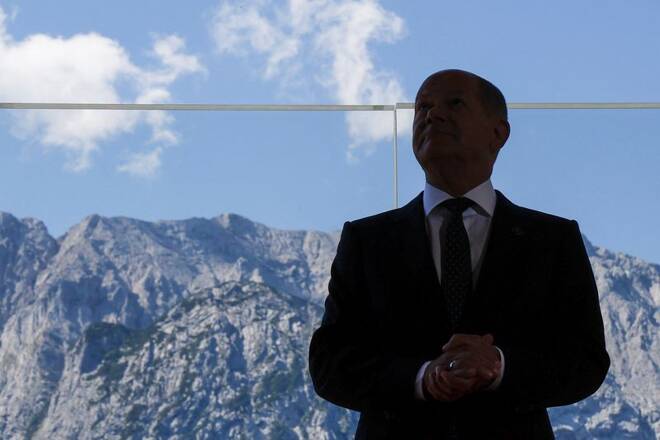Advertisement
Advertisement
Ties to Russia cannot return to what they were pre-Ukraine war – Scholz
By:
GARMISCH-PARTENKIRCHEN (Reuters) - German Chancellor Olaf Scholz said at a summit of the Group of Seven rich democracies on Monday there would be no return to the times before Russia's attack on Ukraine, which had ushered in long-term changes in international relations.
GARMISCH-PARTENKIRCHEN (Reuters) – German Chancellor Olaf Scholz said at a summit of the Group of Seven rich democracies on Monday there would be no return to the times before Russia’s attack on Ukraine, which had ushered in long-term changes in international relations.
“When the situation changes, we have to change,” Scholz said in a televised statement at the end of the second day of the G7 summit taking place in a castle resort in the Bavarian Alps.
Scholz, who is hosting this year’s gathering, said that the G7 leaders had held constructive discussions with the guest nations on Monday – India, Indonesia, Senegal, South Africa and Argentina – which he labeled “democracies of the future”.
“It is good, important and necessary that we talk to each other. Listening to each other creates mutual understanding and makes our work easier,” he said.
(Reporting by Thomas Escritt and Sarah Marsh)
About the Author
Reuterscontributor
Reuters, the news and media division of Thomson Reuters, is the world’s largest international multimedia news provider reaching more than one billion people every day. Reuters provides trusted business, financial, national, and international news to professionals via Thomson Reuters desktops, the world's media organizations, and directly to consumers at Reuters.com and via Reuters TV. Learn more about Thomson Reuters products:
Latest news and analysis
Advertisement
